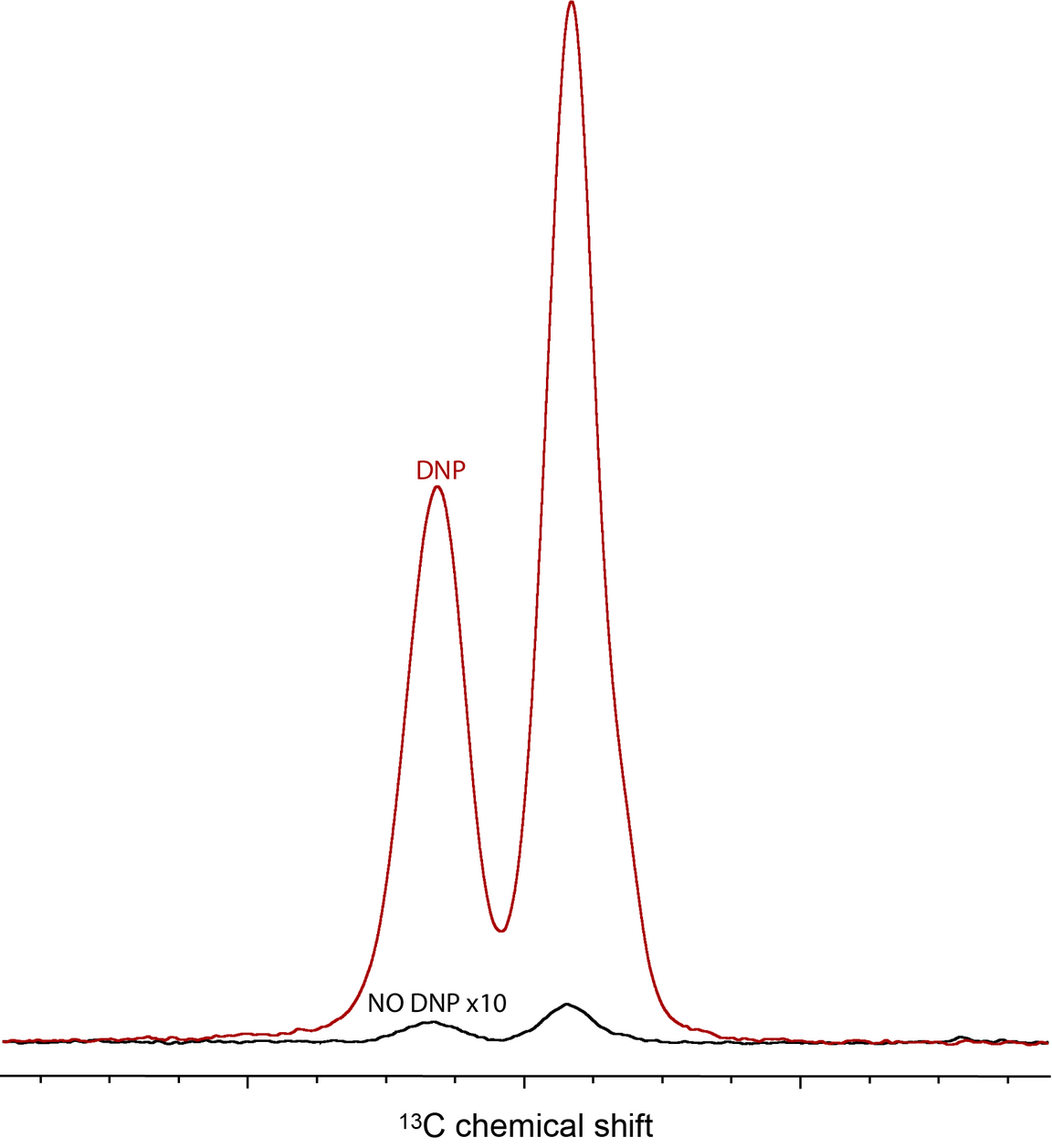
Materialvetenskap
NMR är en utsökt analysmetod för studier i materialvetenskap. SNC erbjuder avancerad instrumentering och expertis för magic angle-spinning fastfas-NMR, diffusions-NMR och microimaging.
Material Science - what is it?
Material Science is the field that studies the structure and properties of solid materials. Characterization of solid materials is often performed by NMR, with some challenges compared to liquid samples. Indeed, when the sample is in the liquid state, the constant molecular tumbling provides well-resolved NMR resonances leading to narrow lines. In solid-state however, the fixed relative orientation of molecules leads to a broadening or the NMR lines. To solve this problem, it is necessary to spin the solid sample at a precise angle of 54.7° with respect to the main magnetic field, in order to get back the well-resolve NMR lines. This technique is called Magic Angle Spinning (MAS) NMR.

MAS NMR spectroscopy is a powerful technique for the characterization of the atomic-level structure and dynamics of materials, since this technique is one of the most powerful one for the measurement of porosity or the molecular-level investigation of surfaces and interfaces.
Material Science Instrumentation
Both solid-state NMR spectrometers of the 600 MHz and 400 MHz magnets at the Swedish NMR Centre are used for the study of solid-state materials, mostly inorganic and organic solid in crystalline and amorphous states, composite materials, pharmaceutical formulations, heterogeneous systems including frozen liquid or gas components, suspensions, and molecular aggregates with dimensions on the nano- to microscale. The 400 MHz magnet is equipped with a low-temperature cryocabinet allowing one to perform solid-state NMR experiments from 100 K to 300 K, with spinning rates from 1 to 15 kHz. The 600 MHz magnet is capable of spinning samples up to 15 kHz at room temperature.
Bruker 400 MHz Ascend DNP NMR spectrometer
- AVANCE Neo Bruker Console
- 263 GHz Gyrotron
- LT-MAS cryocabinet with automatic refill system
- sweep field unit
- 2 NMR probes : 3.2 mm RTMAS HXY, 3.2 mm DNP LTMAS HXY
Varian 600 MHz INOVA NMR spectrometer
- INOVA console
- 3.2 mm RTMAS HXY probe
Dynamic Nuclear Polarization
Sometimes, the use of this technique is limited by its lack of sensitivity, which can prevent the observation of surfaces, defects or insensitive isotopes. This is why the 400 MHz magnet at the Swedish NMR Centre is equipped with a Gyrotron allowing to perform Dynamic Nuclear Polarization (DNP). DNP is the achieved by the addition of unpaired electrons in the sample, usually in the form of a radical-containing solution. The sample is then frozen at 100 K in the NMR probe, spun at the desired spinning speed, and finally the Gyrotron shines microwaves onto the sample. The microwaves transfer the high electronic polarization to nearby nuclei, and the observed nuclei are therefore more polarized, which greatly increases their signal. DNP has been shown to improve by up to two orders of magnitude the sensitivity of NMR experiments on materials under MAS, which corresponds to a two to four orders of magnitude decrease in acquisition time.

The field of DNP-NMR spectroscopy of materials has undergone a rapid development in the last ten years. Currently, MAS DNP can be applied to a wide range of materials, including organic, hybrid and inorganic materials with applications to fields such as catalysis, polymers, pharma, optoelectronics. The 400 MHz DNP NMR spectrometer at the Swedish NMR Centre can provide sensitivity enhancement that grant insights for the characterization of pharmaceutical formulations and the surface of inorganic particles and mesoporous materials.
Access to infrastructure, Information on costs
Do you want to do a MAS NMR or DNP NMR experiment? You can! Just write an email to arthur.pinon@gu.se to discuss the possibility of analyzing your sample with DNP. The solid-state NMR experiment is performed at 100-300 K on a wide range of solids (or frozen liquids). You can probe many different nuclei: 1H, 13C, 15N, 31P, 29Si, 27Al, 2H, 17O and many more!
Costs
Go here for the current information on user fees. For international users there is a possibility to get two weeks of free DNP access through the EU H2020 PANACEA program. Contact arthur.pinon@gu.se for details.